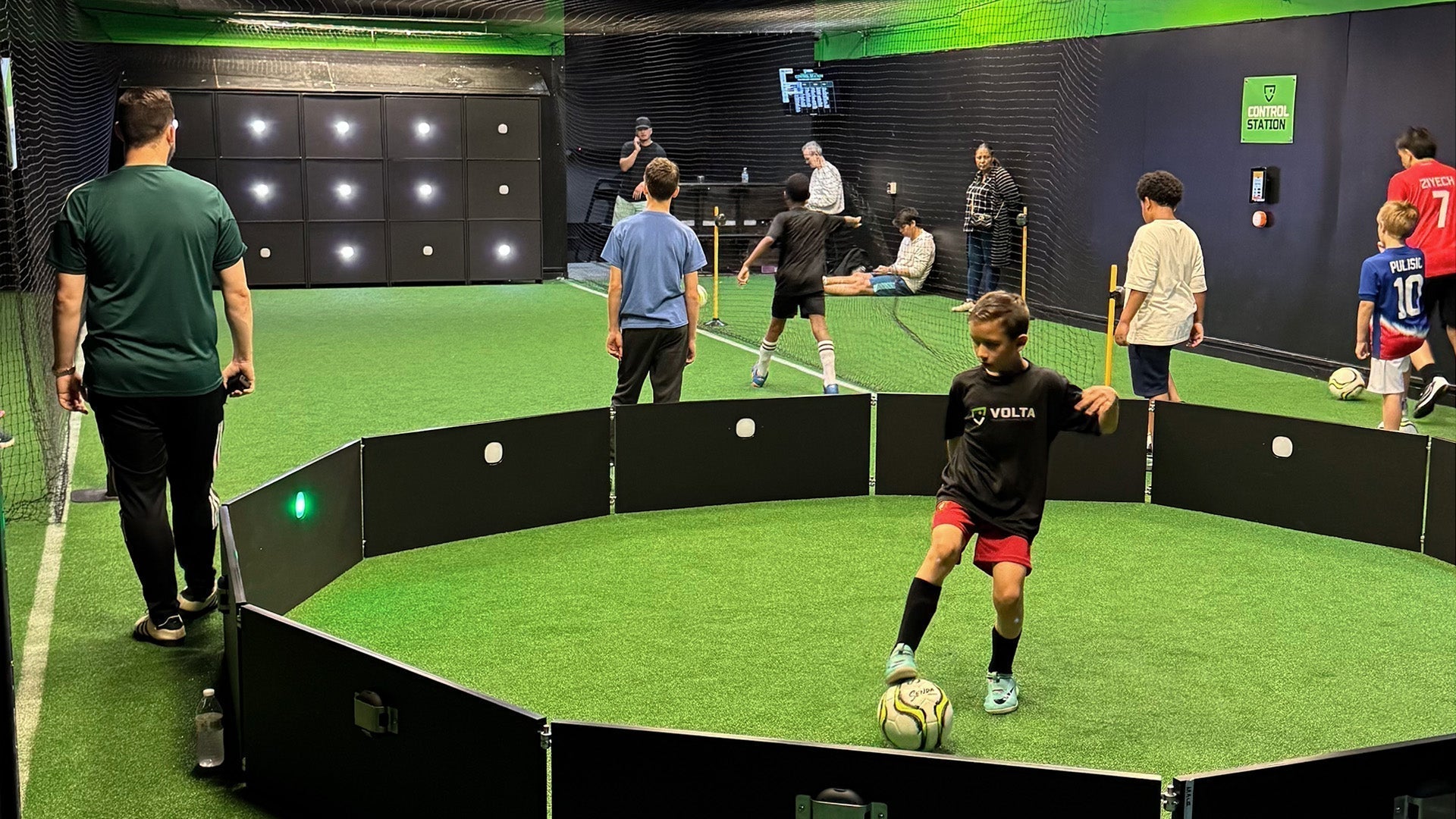Parents and coaches make a lot of important decisions when it comes to youth soccer development. Should their youth player prioritize year-round soccer training only, or should they play multiple sports?
From the outside, both have their advantages and disadvantages. Early sports specialization will expose players to focused, intense training that can speed up sport-specific skill development, but it can also lead to an increased risk of injury and burnout. On the other hand, cross-training with multiple sports builds well-rounded athleticism and strengthens different muscle groups, but might create a short-term skill gap.
In this blog post, I'll go over the pros and cons of both approaches to help parents and coaches make an informed decision about their youth soccer players' development.
Should Young Athletes Focus on Early Sports Specialization or Multi-Sport Participation?
The Case for Playing One Sport
Pros
Focusing on soccer only as a youth player allows them to rack up a ton of deliberate practice hours with the soccer ball, the most important piece of soccer training equipment, which some research suggests accelerates skill acquisition and motor development. If you spend a lot of time playing soccer as a youth player, you will obviously see a lot of improvements, but no evidence shows that specialization before puberty is necessary to reach a high level.
Just training a lot is not necessarily going to make you a better player, although it does to some extent, because real improvement is more about how you train and your training environment on and off the field.
Cons
Research published in sports medicine also shows that highly specialized young soccer players have 2.25 times higher chances of suffering a serious overuse injury compared to multi-sport athletes. Intense soccer training, with no results, constant pressure, and lack of enjoyment, can also lead to burnout, which causes a lot of talented youth players to quit the sport they once loved.
The Case for Playing Multiple Sports – Cross-Training
Pros
A systematic review of elite athletes showed lower injury rates in multi-sport participants, with 88% of NCAA Division I athletes having played more than one sport during their youth years. Cross-training through sports like basketball, tennis, and martial arts develops different motor skills, balance, and coordination, which directly make you a better athlete and indirectly make you a better soccer player.

Cons
Playing multiple sports as a youth player doesn't really have any cons from a health and development perspective, but it might create a short-term competitive disadvantage in youth soccer against players who train soccer only. However, research shows this gap typically closes by late adolescence, and the long-term benefits of injury prevention, better overall athleticism, and sustained motivation far outweigh any temporary technical differences in youth leagues, especially if the player is playing soccer a lot, plus cross-training.
Final Thoughts for Parents and Coaches
To summarize, the truth is you can find information, studies, podcasts, etc., that say one is better than the other and vice versa, but the best evidence from sports medicine and research on elite athletes strongly supports that cross-training is very beneficial for young soccer players. Parents and coaches should prioritize fun, varied sports participation during youth years to allow players to try different sports and, as they get older, discover whether soccer is truly their passion or not.

FAQs
What are the benefits of playing multiple sports for soccer players?
Cross-training with multiple sports has many benefits for both youth and adult players:
- Reduces risk of overuse injuries
- Develops well-rounded motor skills and coordination
- Builds cardiovascular fitness and explosive strength
- Works different muscle groups not used in soccer
- Prevents burnout and keeps training fun
- Improves mental sharpness and resilience
- Leads to better long-term success and peak performance
Do professional soccer players play other sports besides soccer?
Yes, many elite soccer players played multiple sports during their youth years, as well as during their soccer careers, such as:
- Gareth Bale: Golf
- Paolo Maldini: Tennis
- Zlatan Ibrahimović: Martial arts (taekwondo)
- Lionel Messi: Basketball






Leave a comment
This site is protected by hCaptcha and the hCaptcha Privacy Policy and Terms of Service apply.